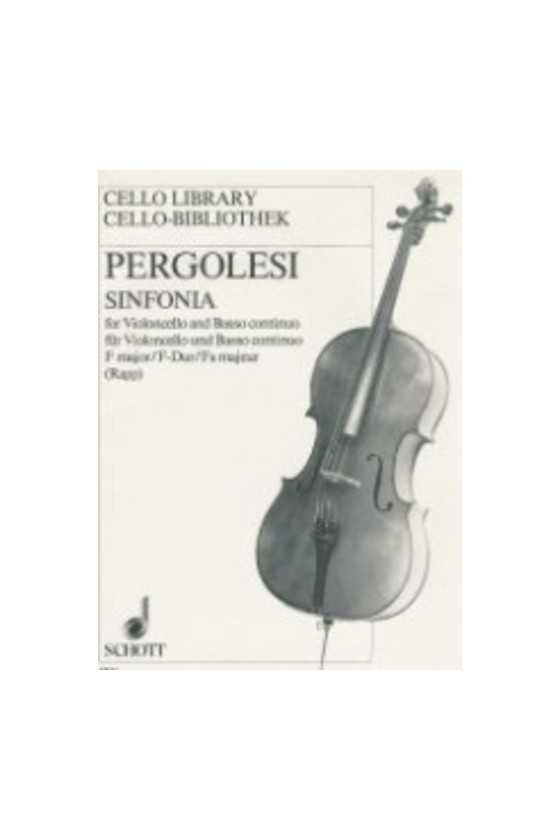Pergolesi, Giovanni Battista
Giovanni Battista Pergolesi, a renowned Italian composer, left an indelible mark on the music world during his short life span. Born on January 4, 1710, in Jesi, Italy, Pergolesi's contributions to the 18th-century stage works and his ability to handle both serious and comic compositions earned him a lasting legacy. Despite his untimely death at the age of 26, Pergolesi's compositions continue to captivate audiences worldwide. This article delves into the life and music of Giovanni Battista Pergolesi, highlighting his early years, his rise to fame, and his enduring musical creations.
Early Life and Education
Giovanni Battista Pergolesi was born into the Draghi family in Jesi, Italy. The family later adopted the name Pergolesi after relocating from Pergola. At a young age, Pergolesi displayed remarkable talent as a violinist, which led him to attend the prestigious Conservatorio dei Poveri in Naples. It was during his time at the conservatory that Pergolesi honed his skills and earned a high reputation as a violin virtuoso.
Rise to Fame: A Maestro di Cappella
In 1732, Pergolesi's musical prowess caught the attention of the prince of Stigliano, who appointed him as the maestro di cappella. This prestigious role provided Pergolesi with the opportunity to showcase his compositional abilities. His first notable works during this period included the Neapolitan opera buffa, "Lo frate 'nnammorato," and a remarkable mass, likely his Mass in D. Both compositions were well-received, setting the stage for Pergolesi's future success.
The Triumph of La Serva Padrona
Pergolesi's breakthrough came in 1733 with the production of his opera seria, "Il prigionier superbo." However, it was the inclusion of the comic intermezzo, "La serva padrona," between the acts of "Il prigionier superbo," that truly cemented his fame. "La serva padrona" quickly gained popularity and became one of the most celebrated stage works of the 18th century. Its success, however, was largely posthumous, reaching its peak after a performance in Paris in 1752.
Musical Contributions and Legacy
While Pergolesi's career was tragically cut short, his impact on the music world cannot be overstated. His serious compositions, such as the Stabat Mater and his masses, showcased his ability to handle large choral and instrumental forces with finesse. These works demonstrated Pergolesi's mastery of composition and solidified his status as a gifted composer.
In contrast, Pergolesi's gift for comic characterization shone through in his classic work, "La serva padrona." This intermezzo showcased his ability to craft humorous and engaging music, captivating audiences with its witty and charming melodies.
Controversy and Forgeries
With Pergolesi's rising fame came the unfortunate consequence of musical forgeries. The success of "La serva padrona" led to a phenomenon known as "la guerre des bouffons" or "the war of the buffoons." Musical forgers sought to produce spurious works attributed to Pergolesi, muddying the waters and raising doubts about the authenticity of some compositions attributed to him.
Despite this controversy, Pergolesi's genuine compositions continue to inspire and captivate audiences, solidifying his place among the great composers of his time.
The Pergolesi Phenomenon
Although Pergolesi's fame was relatively limited during his lifetime, his posthumous reputation experienced exponential growth. The overwhelming success of "La serva padrona" and subsequent performances in Paris propelled Pergolesi into the forefront of the musical world. His compositions became highly sought after, and his influence extended far beyond Italy.
Tragic End and Lasting Influence
Pergolesi's health began to decline, and in 1736, at the young age of 26, he sought refuge in the Franciscan monastery at Pozzuoli, near Naples. It was there that he composed his final work, the celebrated Stabat Mater. Despite his immense talent and contributions to the world of music, Pergolesi died in extreme poverty. He was laid to rest at the cathedral in Pozzuoli, leaving behind a legacy that would endure for centuries to come.
Conclusion
Giovanni Battista Pergolesi's brilliance as a composer remains evident in his musical creations. From his early years as a prodigious violinist to his rise to fame as a maestro di cappella, Pergolesi's talent knew no bounds. His ability to seamlessly transition between serious and comic compositions showcased his versatility and artistry. Although his life was tragically cut short, Pergolesi's contributions to the music world continue to resonate, ensuring his place among the great composers of the 18th century and beyond.


